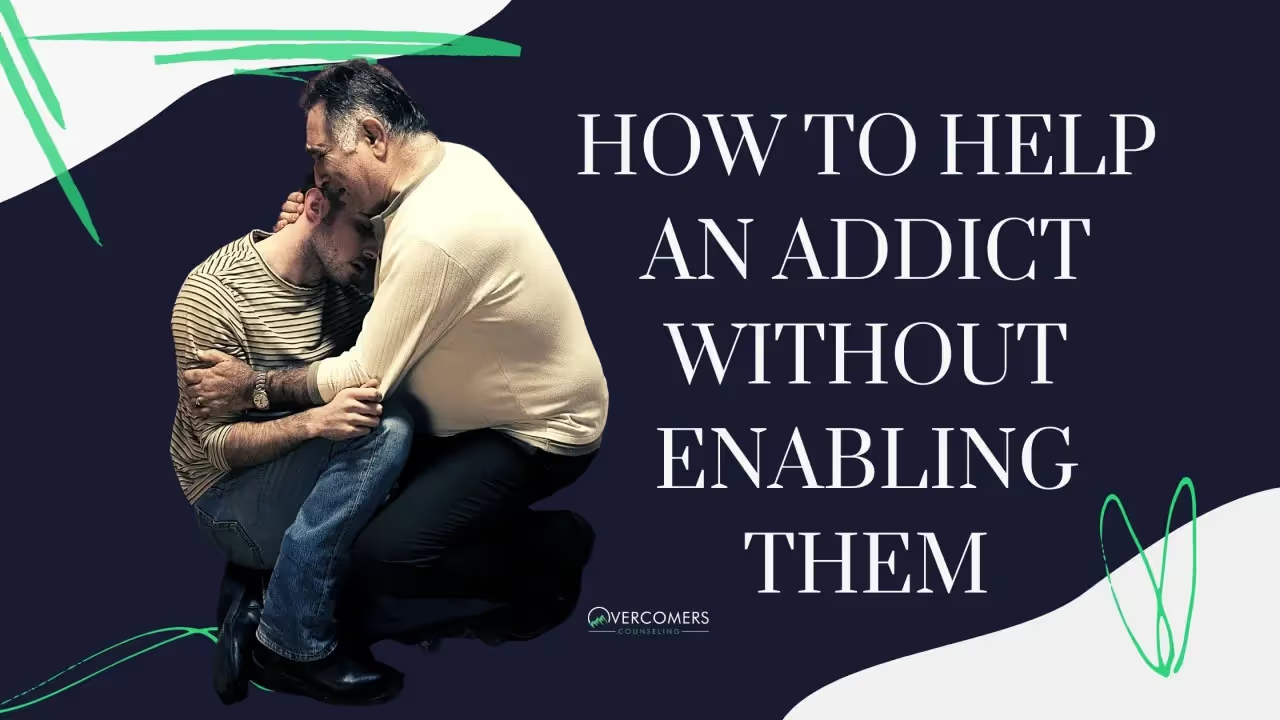How to help an addict without enabling them? This is a question that many people struggle with, as they want to do what's best for the addict but don't want...

How to help an addict without enabling them?
This is a question that many people struggle with, as they want to do what's best for the addict but don't want to enable them.
So, what exactly does it mean to enable an addict?
It can be difficult to see a loved one struggling with addiction and not want to help.
However, it's important to understand the difference between helping and enabling.

Enabling means doing things that allow the addict to continue using without facing the natural consequences of their addiction.
This might include making excuses for their behavior, covering up for them, or taking on their responsibilities.
This can be things like making excuses for them, cleaning up after them, providing them with money or drugs, or protecting them from the consequences of their actions.
While it might seem like you're just trying to help, in reality, you're preventing them from hitting rock bottom and experiencing the pain necessary to motivate them to seek treatment.
In contrast, understanding how to help an addict without enabling them means supporting their sobriety while also holding them accountable for their choices.
This might involve attending meetings with them, helping to pay for treatment, or simply being there to listen and offer support.
You may find yourself making excuses for their behavior, justifying their choices, or even enabling them to continue using.
However, if you want to help an addict, it's important not to enable their behavior.
This means not making excuses for them, not giving them money or other resources that they can use to buy drugs or alcohol, and not covering up for them when they make mistakes.
Instead, you should be honest with the addict about their behavior and its consequences.
This will help them to see the reality of their situation and may motivate them to seek help.
Ultimately, though, it's up to the addict to decide to seek treatment.
You can provide support, but you can't force them to get better.

If you feel like you're constantly putting out fires and dealing with the addict's messes, it might be time to set some boundaries.
This means establishing rules and limits that the addict must follow to continue living in your home or being around you.
This is a very important step in learning how to help an addict without enabling them.
For example, you might require them to attend meetings or therapy sessions, get a job and pay rent, or stay sober for a certain amount of time before they can spend time with you.
The key is to be firm and consistent with the boundaries that you set. If the addict breaks the rules, don't hesitate to enforce the consequences.
It might be tough, but it's important to remember that you deserve to live a healthy, happy life too.
It is often said that addiction is a family disease, and that is certainly true.
Addiction not only affects the addict, but also those who love them.
Watching a loved one suffer from addiction can be painful, and it can be tempting to try to protect them from the consequences of their disease.
However, enabling an addict only serves to further their cycle of addiction.
It is important to remember that addicts are capable of making their own choices and that you cannot control their behavior.
The best thing you can do is to offer support and understanding, without enabling them to continue using.
This can be difficult, but it is essential if you want to help your loved one recover from addiction.
Many people want to help a friend or loved one who is struggling with addiction, but they may not know how.
It is important to remember that addiction is a chronic and progressive disease, and it is crucial to get professional help.
There are many ways to find treatment and support, such as therapy, counseling, 12-step programs, and other support groups.
It is important to encourage the person to seek help and to offer support, but it is also important to respect their decision and let them take the lead.
It is also important to set boundaries and not enable the person's addiction by enabling their behavior.
For example, you might need to stop giving them money or shoulder all of their responsibilities.
Ultimately, the goal is to help the person get to a place where they can get better on their own.
It's natural to want to do anything you can to help them get better, but it's important to remember that you can't fix the problem on your own.
Trying to do too much can end up enabling their addiction, instead of helping them recover from it.
If you're not sure how to help an addict without enabling them, the best place to start is by getting help for yourself.
There are many support groups and counseling services available for family members of addicts.
These resources can provide you with the tools you need to deal with your loved one's addiction, while also helping you take care of yourself.
Addiction is a complex disease that affects everyone in the family.
It can be difficult to know how to help an addict without enabling them, but by setting boundaries and getting help for yourself, you can make a difference.
Offering support and understanding is crucial, but it's also important to remember that you cannot control the addict's behavior.
With time and patience, you can help your loved one recover from addiction.
The content in this article is for informational purposes only and should not be taken as medical advice.
If you are struggling with addiction, please seek professional help.
Some common signs of alcohol abuse include drinking more than intended, neglecting responsibilities, and continuing to drink despite negative consequences
If you think you might be struggling with alcohol abuse, the first step is to talk to your doctor. Your doctor can help you assess your drinking habits and recommend treatment options. There are also many different types of treatment programs available for alcohol abuse, so you can find one that fits your needs and circumstances. Additionally, support groups can be a valuable resource for anyone struggling with alcohol abuse. These groups provide a safe space to share your experiences and connect with others who are facing similar challenges.
Some resources for family members of addicts include therapy, counseling, 12-step programs, and other support groups. It is important to seek out these resources to get the tools you need to deal with your loved one's addiction. You can also find help for yourself through these resources.
Yes, alcohol abuse is a treatable condition. However, it often requires professional treatment to overcome. With the right support, though, anyone can overcome alcohol abuse and regain control of their life. It's important to reach out for help if you or someone you know is struggling. With the right treatment, anyone can overcome alcohol abuse and regain control of their life.
Alcohol abuse is a pattern of drinking that leads to problems in one's personal, professional, or social life.
The best way to help an addict without enabling them is by setting boundaries and getting help for yourself. It is important to remember that you cannot control the addict's behavior, but you can offer support and understanding. With time and patience, you can help your loved one recover from addiction.